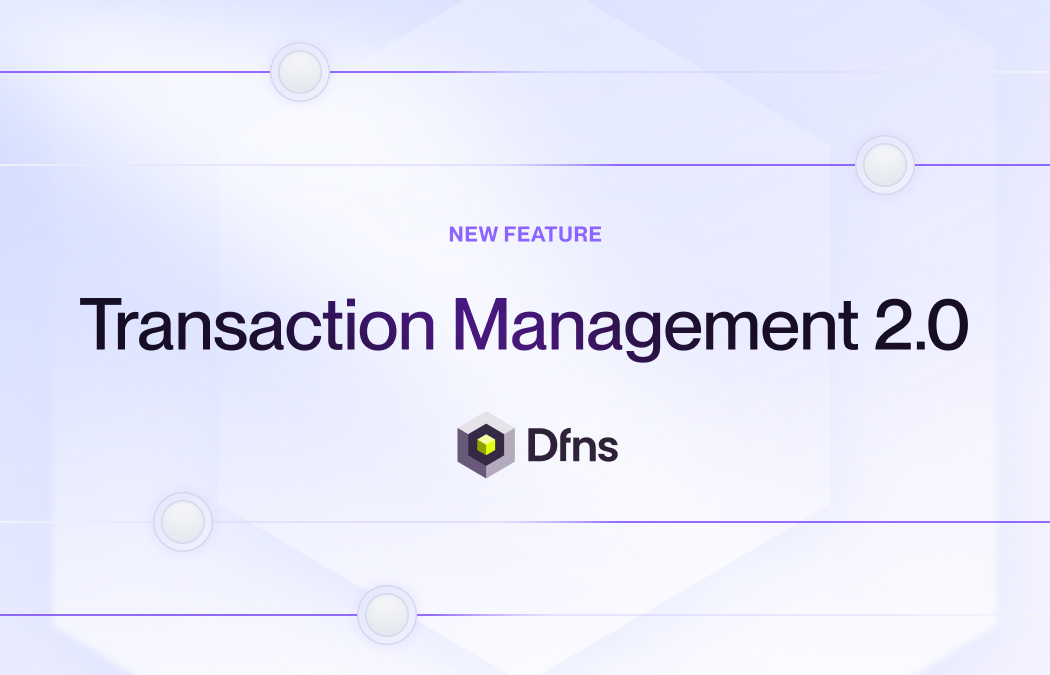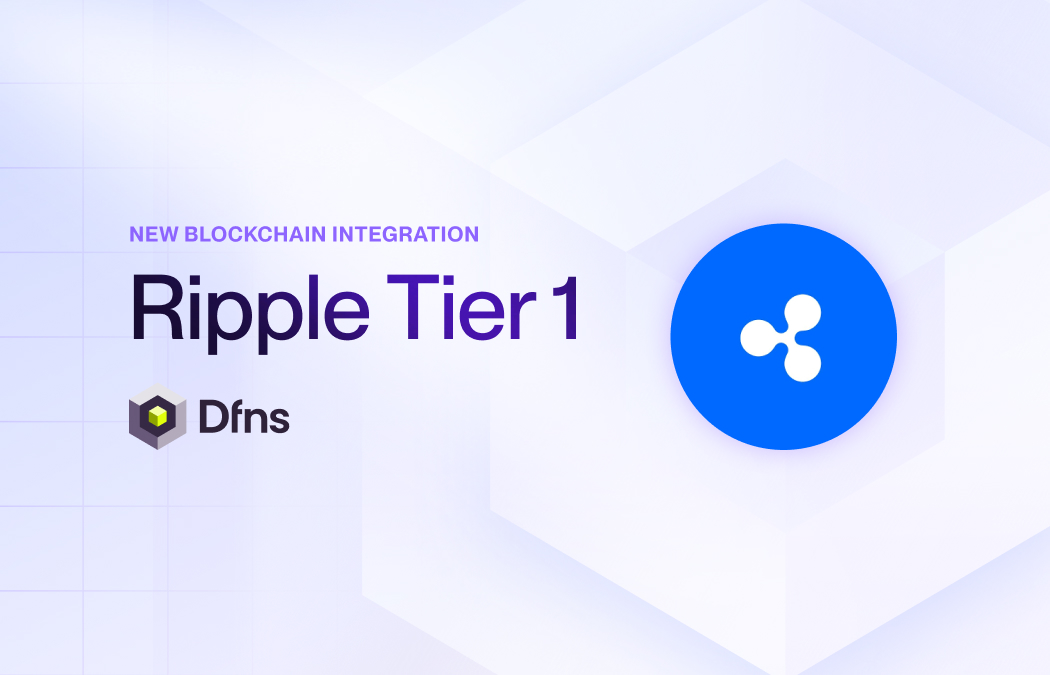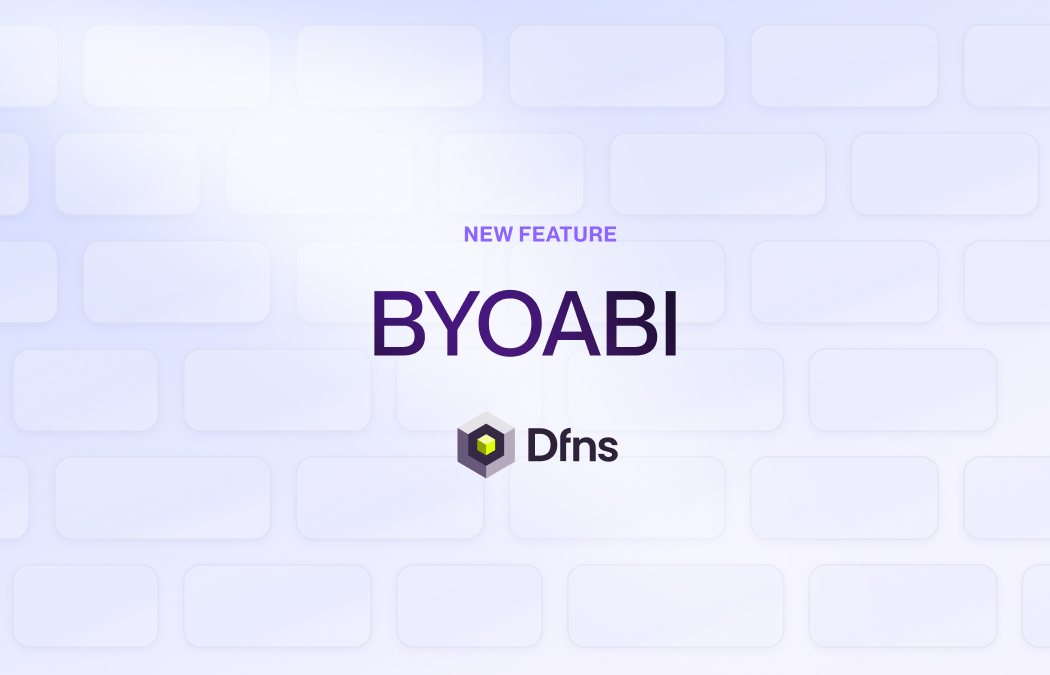.jpg)
Dfns expands Chainalysis and Notabene for unified compliance across stablecoins and tokens.
At Dfns, we know that secure wallet infrastructure for financial institutions must go hand in hand with strong compliance. This month, we’re announcing major upgrades to our Chainalysis and Notabene integrations, extending their coverage to new blockchains, tokens, and stablecoin rails. The result is broader compliance reach, standardized controls across networks, and stronger foundations for banks, payments companies, and trading platforms operating at scale.
Chainalysis screening expands to Solana and Tron stablecoins
Stablecoins have become the settlement layer of choice for digital asset finance. In 2025, stablecoin activity grew to $34.53 trillion across 7.58 billion transactions, up significantly from the prior year. Solana and Tron are now at the center of this growth, accounting for nearly 27% of stablecoin value and over 33% of transaction volume.
To meet this shift, we’ve extended our Chainalysis integration to cover stablecoins on Solana (SPL-Token-2022) and Tron (TRC-20). This upgrade allows institutions to apply the same sanctions and AML policies they already enforce on Ethereum and L2s directly to these high-volume rails.
- Outbound Transfers are screened before any signature is produced. If the recipient address is sanctioned or exceeds your risk thresholds, the transaction is blocked pre-broadcast, stopping bad payments before they leave the wallet.
- Inbound Transfers are screened as soon as they arrive. Since blockchain protocols cannot reject inbound funds, Dfns emits structured webhooks with full Chainalysis risk data so your systems can tag, quarantine, or escalate funds originating from flagged addresses.
- Audit Logs are immutable and complete. Every allow, block, or flag decision is logged with the Chainalysis reference, Policy Engine evaluation, and transaction metadata, ensuring regulators and internal audit teams have full evidence.
This layered screening model provides policy-based gating before value leaves, real-time visibility when funds arrive, and end-to-end evidence for audit and regulators, now extended to Solana and Tron, two of the most important stablecoin ecosystems in production use today.
Notabene coverage across more tokens and networks
Together with Chainalysis, we’ve expanded our Notabene integration to cover more ground. It now supports Travel Rule compliance and counterparty VASP checks for both stablecoins and native tokens across a wide range of blockchains. This means clients can meet Travel Rule obligations consistently across almost every network they use without having to rely on fragmented or manual compliance processes.
- USDT is now supported on Ethereum, ArbitrumOne, Avalanche, Base, Binance Smart Chain, Celo, Optimism, Polygon, Solana, and Aptos.
- USDC is now supported on ArbitrumOne, Avalanche, Base, Binance Smart Chain, Celo, Optimism, Polygon, Aptos, Sui, and Algorand.
- Native token coverage has expanded to over 20 networks, including Algorand, Aptos, ArbitrumOne, Avalanche, Babylon, Berachain, BNB Smart Chain, Cardano, Celo, Cosmos, Hedera, IOTA, Kadena, Kaspa, Litecoin, Optimism, Polygon, Polymesh, Stellar, Sui, and Tron.
Chainalysis core network support
While Chainalysis has broad API coverage, our integration focuses on core, stable networks that their team designates for production support. Today, this includes:
- Bitcoin, Bitcoin Cash, Litecoin, Dogecoin, Dash
- Ethereum, Polygon, BNB Smart Chain, Avalanche
- Arbitrum, Optimism, Base
- Solana, Tron
- Algorand, XRP, Zcash, Ethereum Classic
- Cronos, Fantom, Celo, EOS
Additional blockchains are on the roadmap, including Linea, Palm, Unichain, Ink, Soneium, TON, Blast, Starknet, Scroll, Mantle, and Metis. By focusing on networks with full, stable support, we ensure consistent results across all screening outcomes, avoiding gaps where compliance risk is highest.
Why this matters for fintechs and institutions
For banks, payment providers, and trading platforms, these updates mean compliance workflows can finally be standardized across chains and tokens. No more parallel processes for Ethereum vs. Solana vs. Tron. No more blind spots where stablecoin flows slip past sanctions or AML screening. No more fragmented audit trails scattered across multiple providers.
Instead, compliance teams can operate from a single control plane within the Dfns platform:
- Uniform policies across all supported networks.
- Consistent webhook formats for inbound risk alerts.
- Immutable audit logs capturing every decision, reason, and reference.
Compliance is not an afterthought, it’s embedded directly into the wallet infrastructure ensuring every transfer follows the same controls before value moves. As stablecoins grow in global payment volume and digital asset networks diversify, compliance must keep pace. With our expanded Chainalysis and Notabene integrations, Dfns allows institutions to scale across new chains and assets without sacrificing security, compliance, or auditability. Your teams can now:
- Block outbound payments to risky recipients across Ethereum, Solana, Tron, and beyond.
- Flag and respond to tainted inbound funds in real time.
- Meet Travel Rule obligations for USDT, USDC, and native tokens across dozens of networks.
- Rely on a unified evidence model for regulators and auditors.
Compliance is no longer a patchwork. With Dfns, it’s a single, automated, and reliable system, so you can expand digital asset services with the confidence regulators, partners, and customers demand.
Get started with Dfns: https://app.dfns.io/get-started





